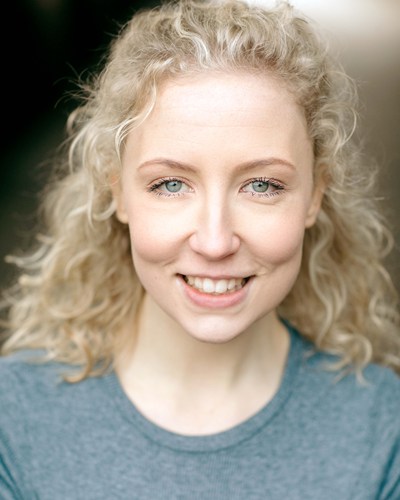Arts practitioner
Rachael Merry, who works with deaf young people at theatre company Deafinitely Theatre, shares her insights.

What types of children and young people do you work with?
Deafinitely Theatre is a bilingual theatre company led by deaf people. Our Youth Theatre is a reflection of this and welcomes deaf and hearing young people aged 14–25. Our young people come from various different communication backgrounds across the UK.
How do you communicate with the deaf young people you work with?
While I’m hearing, I have British Sign Language (BSL) Level 6. Depending on workshop size and communication needs within the room, I always have at least one qualified interpreter with me to ensure full access. It’s not uncommon to be working with one group of young people using BSL, Sign Supported English, lipspeaking and spoken English all at the same time!
How do you plan for leading a class or workshop with deaf children and young people?
Deaf actors are incredibly visual so respond much better to examples or modelling rather than lengthy explanation. I like to have lots of ideas and visuals ready, that way I can respond to the group and adjust the plan as we go. I also make sure the room is well lit and an appropriate size and ask for the communication needs of the group beforehand.
What challenges do deaf young people face in drama classes and how can they be overcome?
The beauty of drama is that it’s a practice accessible to everybody. However if a deaf young person finds English challenging, the process of working with scripts may be off-putting and sometimes there is a lack of deaf awareness in mainstream drama classes. To overcome this I work with a Deaf assistant director, adapt scripts or work visually.
What tips do you have for deaf children and young people who want to attend a local drama club?
Explain your communication needs to the facilitator and suggest a deaf awareness session for the whole class. Include things like speaking clearly, getting your attention before they start speaking and using visual cues or signs where possible. Games involving BSL are also a great introduction!
What do you find deaf children and young people get out of drama classes?
Confidence, communication and an environment in which to socialise where they feel comfortable and can express themselves in a different way. It’s an opportunity to explore and create and it’s also a lot of fun!
Do you have any other advice for deaf children and young people who want to get involved with drama?
Come to Deafinitely Youth Theatre! We hold summer schools, a fortnightly Youth Theatre and a training hub for deaf adults wanting professional training who may not be able to access drama school. Aside from that, keep going and don’t give up – you CAN do it!
To find out more, visit www.deafinitelytheatre.co.uk.
